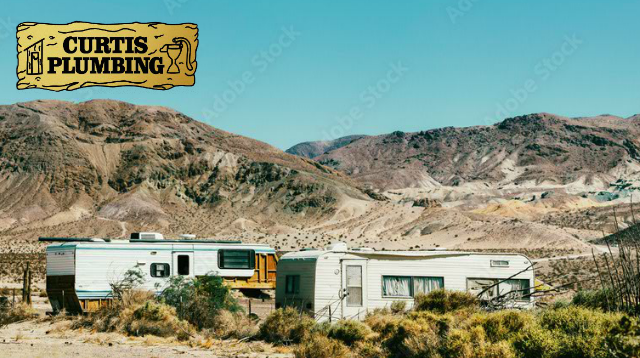How Arizona’s Hard Water Impacts Septic Performance
Arizona is known for having hard water—water with high concentrations of minerals like calcium and magnesium. While hard water isn’t necessarily harmful to human health, it can have a significant impact on septic system performance over time. Understanding these effects can help you take steps to protect your system and avoid costly repairs.
What Is Hard Water?
Hard water contains elevated levels of dissolved minerals, primarily calcium and magnesium. In Arizona, especially in Tucson and surrounding areas, water hardness levels are often well above the national average. These minerals can leave behind scale deposits in plumbing and septic components.
How Hard Water Affects Septic Tanks
- Scale Buildup – Mineral deposits can form on the inside of pipes, baffles, and tank walls, reducing flow and efficiency.
- Reduced Bacterial Efficiency – High mineral content can alter the environment inside the tank, potentially slowing down the natural bacterial breakdown of waste.
- Pump Wear – Minerals can contribute to abrasive wear on mechanical pumps and aerators in advanced systems.
Impact on Drain Fields
When mineral-rich water leaves the tank and enters the drain field, it can contribute to soil clogging over time. Scale can form within distribution pipes, reducing the even flow of effluent and creating uneven absorption in the soil.
Appliance and Plumbing Issues That Affect the Septic System
- Shorter Lifespan of Water Heaters – Scale buildup reduces efficiency and can lead to more frequent draining or replacement, indirectly affecting water usage patterns.
- Soap Inefficiency – Hard water requires more soap or detergent, which can increase the chemical load in your septic system.
- Increased Maintenance for Fixtures – Frequent descaling and cleaning may be needed to prevent clogs that can send solids downstream.
Mitigating Hard Water Effects on Septic Systems
- Install a Water Softener – Reduces mineral content before it enters the septic system, but should be set and maintained properly to avoid excessive salt discharge.
- Use Septic-Safe Cleaning Products – Avoid harsh chemicals that can further disrupt bacterial balance.
- Schedule Regular Pumping and Inspections – Removing sludge and scale buildup helps maintain optimal function.
- Monitor Water Usage – Limit excessive water flow to give your system time to process waste efficiently.
Special Considerations for Water Softeners
Water softeners replace calcium and magnesium with sodium or potassium. While this helps prevent scale buildup, excessive salt discharge from poorly adjusted softeners can harm the bacteria in your septic tank and affect soil permeability in the drain field. A professional can help you set your softener for optimal performance and minimal septic impact.
Tucson Septic Systems: Protecting Against Hard Water Damage
Our team understands the challenges Arizona’s hard water presents for septic systems. We offer inspections, maintenance, and guidance on water treatment options that protect both your plumbing and your septic system.
Contact Tucson Septic Systems today to learn how we can help extend the life of your system despite Arizona’s hard water challenges.

